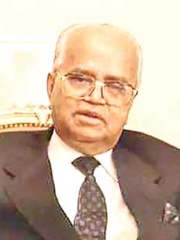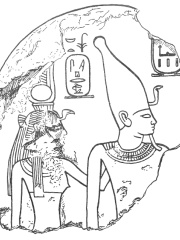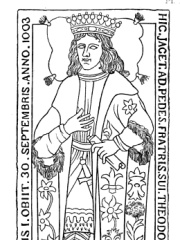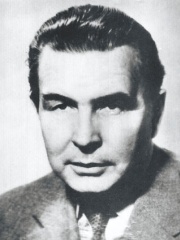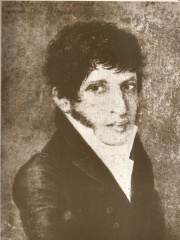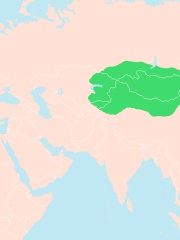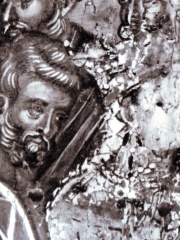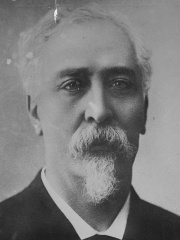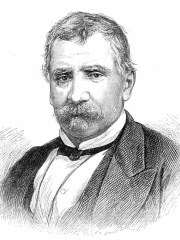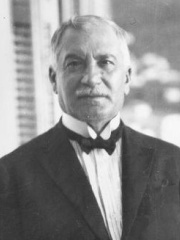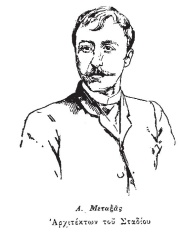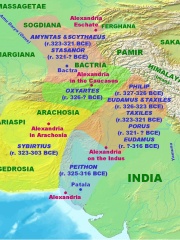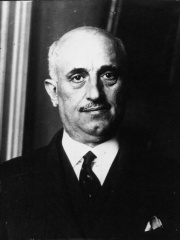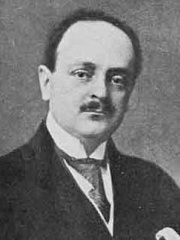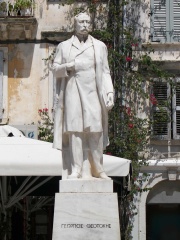Politician
Amythaon
EN.WIKIPEDIA PAGE VIEWS (PV)

 Amythaon
Amythaon
In Greek mythology, Amythaon (; Ancient Greek: Ἀμυθάων, gen.: Ἀμυθάονος) was prince of Iolcus as the son of King Cretheus and Tyro, daughter of King Salmoneus of Elis. He was the brother of Aeson and Pheres. Amythaon dwelt at Pylos in Messenia, and by Idomene, his niece, or by Aglaia became the father of Bias, Melampus, Aeolia and Perimele. His wife Idomene is sometimes said to be daughter of Abas, king of Argos. Read more on Wikipedia
His biography is available in 20 different languages on Wikipedia. Amythaon is the 14,162nd most popular politician (down from 13,619th in 2024), the 708th most popular biography from Greece (down from 689th in 2019) and the 315th most popular Greek Politician.
Memorability Metrics
Page views of Amythaon by language
Among Politicians
Among politicians, Amythaon ranks 14,162 out of 19,576. Before him are Asharid-apal-Ekur, Abdur Rahman Biswas, Eberhard Diepgen, Meretseger, D. N. Aidit, and Grisha Filipov. After him are Ali ibn Umar, Theobald II of Blois, Adam Rapacki, Mariano Moreno, Zhizhi, and Stamatios Nikolopoulos.
Most Popular Politicians in Wikipedia
Go to all RankingsAsharid-apal-Ekur
1200 BC - 1074 BC
HPI: 56.95
Rank: 14,162
Abdur Rahman Biswas
1926 - 2017
HPI: 56.95
Rank: 14,163
Eberhard Diepgen
1941 - Present
HPI: 56.95
Rank: 14,164
Meretseger
1850 BC - 1800 BC
HPI: 56.94
Rank: 14,165
D. N. Aidit
1923 - 1965
HPI: 56.94
Rank: 14,166
Grisha Filipov
1919 - 1994
HPI: 56.94
Rank: 14,167
Amythaon
HPI: 56.94
Rank: 14,168
Ali ibn Umar
HPI: 56.94
Rank: 14,169
Theobald II of Blois
985 - 1004
HPI: 56.94
Rank: 14,170
Adam Rapacki
1909 - 1970
HPI: 56.94
Rank: 14,171
Mariano Moreno
1778 - 1811
HPI: 56.94
Rank: 14,172
Zhizhi
HPI: 56.93
Rank: 14,173
Stamatios Nikolopoulos
1900 - 1910
HPI: 56.93
Rank: 14,174
In Greece
Among people born in Greece, Amythaon ranks 708 out of NaN. Before him are Thomas Preljubović (1310), Stefanos Dragoumis (1842), Alexandros Koumoundouros (1817), Eurymedon (-450), Themistoklis Sofoulis (1860), and Aliki Vougiouklaki (1934). After him are Stamatios Nikolopoulos (1900), Anastasios Metaxas (1862), Sibyrtius (-400), Nikos Anastopoulos (1958), Alexandros Papanastasiou (1876), and Tlepolemus (null).
Others born in Greece
Go to all RankingsThomas Preljubović
POLITICIAN
1310 - 1384
HPI: 57.05
Rank: 702
Stefanos Dragoumis
POLITICIAN
1842 - 1923
HPI: 57.05
Rank: 703
Alexandros Koumoundouros
POLITICIAN
1817 - 1883
HPI: 57.05
Rank: 704
Eurymedon
POLITICIAN
450 BC - 413 BC
HPI: 57.03
Rank: 705
Themistoklis Sofoulis
POLITICIAN
1860 - 1949
HPI: 57.00
Rank: 706
Aliki Vougiouklaki
ACTOR
1934 - 1996
HPI: 56.99
Rank: 707
Amythaon
POLITICIAN
HPI: 56.94
Rank: 708
Stamatios Nikolopoulos
POLITICIAN
1900 - 1910
HPI: 56.93
Rank: 709
Anastasios Metaxas
ARCHITECT
1862 - 1937
HPI: 56.90
Rank: 710
Sibyrtius
POLITICIAN
400 BC - 360 BC
HPI: 56.84
Rank: 711
Nikos Anastopoulos
SOCCER PLAYER
1958 - Present
HPI: 56.73
Rank: 712
Alexandros Papanastasiou
POLITICIAN
1876 - 1936
HPI: 56.72
Rank: 713
Tlepolemus
POLITICIAN
HPI: 56.68
Rank: 714
Among Politicians In Greece
Among politicians born in Greece, Amythaon ranks 315. Before him are Ioannis Sarmas (1957), Thomas Preljubović (1310), Stefanos Dragoumis (1842), Alexandros Koumoundouros (1817), Eurymedon (-450), and Themistoklis Sofoulis (1860). After him are Stamatios Nikolopoulos (1900), Sibyrtius (-400), Alexandros Papanastasiou (1876), Tlepolemus (null), Alexandros Diomidis (1875), and Georgios Theotokis (1844).
Ioannis Sarmas
1957 - Present
HPI: 57.07
Rank: 309
Thomas Preljubović
1310 - 1384
HPI: 57.05
Rank: 310
Stefanos Dragoumis
1842 - 1923
HPI: 57.05
Rank: 311
Alexandros Koumoundouros
1817 - 1883
HPI: 57.05
Rank: 312
Eurymedon
450 BC - 413 BC
HPI: 57.03
Rank: 313
Themistoklis Sofoulis
1860 - 1949
HPI: 57.00
Rank: 314
Amythaon
HPI: 56.94
Rank: 315
Stamatios Nikolopoulos
1900 - 1910
HPI: 56.93
Rank: 316
Sibyrtius
400 BC - 360 BC
HPI: 56.84
Rank: 317
Alexandros Papanastasiou
1876 - 1936
HPI: 56.72
Rank: 318
Tlepolemus
HPI: 56.68
Rank: 319
Alexandros Diomidis
1875 - 1950
HPI: 56.44
Rank: 320
Georgios Theotokis
1844 - 1916
HPI: 56.38
Rank: 321

